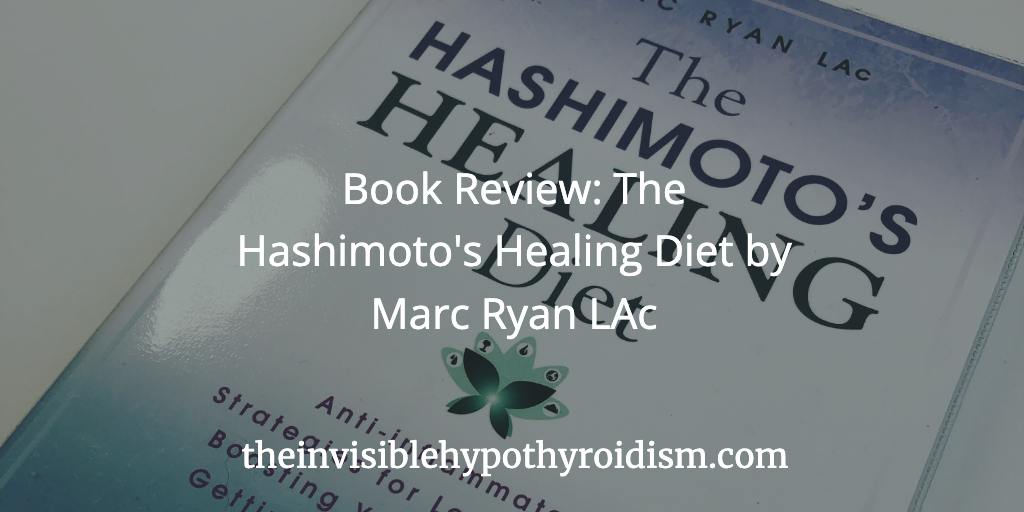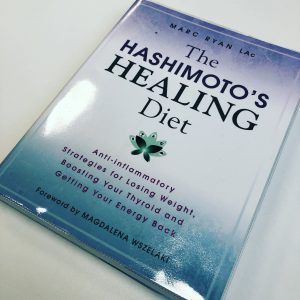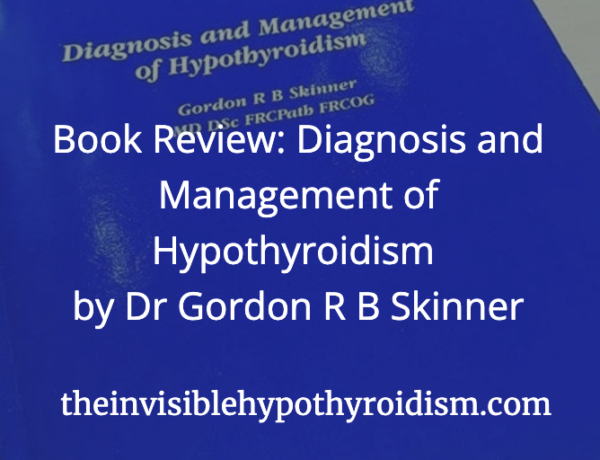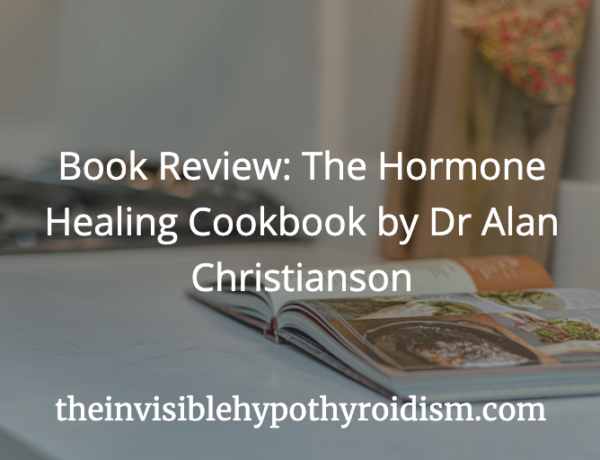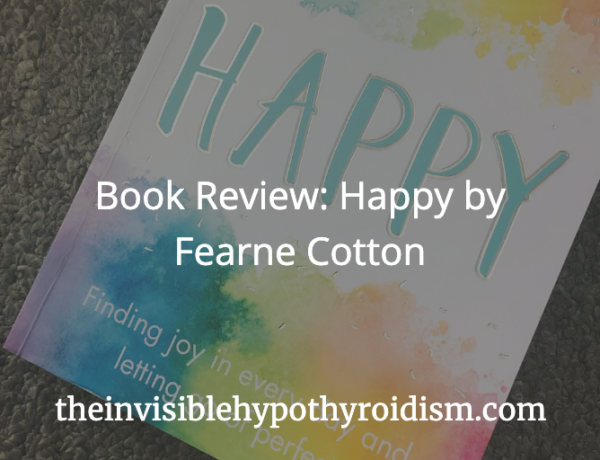I stumbled across this book in the library and although I’d never actually heard of it before, thought I’d take it out and give it a read anyway.
Marc Ryan’s book provides a combination of functional medicine and traditional Chinese medicine, in treating and managing Hashimoto’s.
Marc Ryan LAc is an acupuncturist and herbalist who also practises functional medicine.
Marc promotes the idea of ‘less’ and ‘less being more’. Simplify your diet, let go of stress and overcommitting, and simplify your supplements.
He says “People are angling to make money off you. They want to sell you on changing to this diet or this exercise regimen. But here’s the thing – some of the most powerful health decisions actually involve doing less.”
As a concept, I liked this. The answer to feeling well doesn’t always lie in taking more and more supplements, doing more and more excessive exercise and removing hundreds of things from your diet.
Marc has Hashimoto’s himself, as does his daughter, so his experience with it is both personal and clinical. The opening few chapters definitely demonstrate this. He writes with a friendly, informal tone.
Whilst most of the functional medicine approaches and information contained in this book won’t be new to a lot of thyroid patients who already read a lot of thyroid blogs and books, the Chinese medicine aspect may well be.
Personally, I didn’t find the traditional Chinese medicine information to excite me or be useful in my situation. A lot of what Marc shared made sense, but a lot of it also just did not. If I’m honest, a lot of it went over my head and I attempted reading certain chapters on his Chinese medicine approach multiple times before giving up. I was open-minded about it and if you are too, it’s definitely worth reading yourself. I just think it’s one of those things that people either do or do not feel connected to.
I did like his comparisons to what founders of traditional Chinese medicine said many, many years ago, now also being relevant in this day and age (there’s no doubting that they were on to something), but I just felt like a lot of it also didn’t apply to the modern day, or perhaps just my own personal situation with having Hashimoto’s.
The book is a big read, at almost four-hundred pages long and thirty chapters.
He covers diet, digestion and how it’s all related to autoimmune disease, as well as food sensitivities, deficiencies and excess. A 90-day eating plan is included, as well as further chapters on infections such as SIBO, EBV, Candidasis, Lyme and more.
Part three looks at using different diets to specifically address certain symptoms and complaints of Hashimoto’s. This could be very useful to many people and in particular, I am going to talk about the Histamine Intolerance dietary suggestions with my functional medicine practitioner.
He says “As I mentioned in my last book” quite a few times which became somewhat frustrating as it assumed I had read his first book, when I did not. And a lot of his readers won’t have done. So you may feel, like me, that some information was missing there.
Overall though, it is an interesting read, being very different to any other thyroid books I’ve read so far. I do feel that most people will sit on either end of the scale though, in terms of either loving it or not finding it very helpful at all, due to its very unique approach.
You can get a copy of this book from Amazon here.
Have you read this book?
You can click on the hyperlinks in the above post to learn more and see references to information given.

